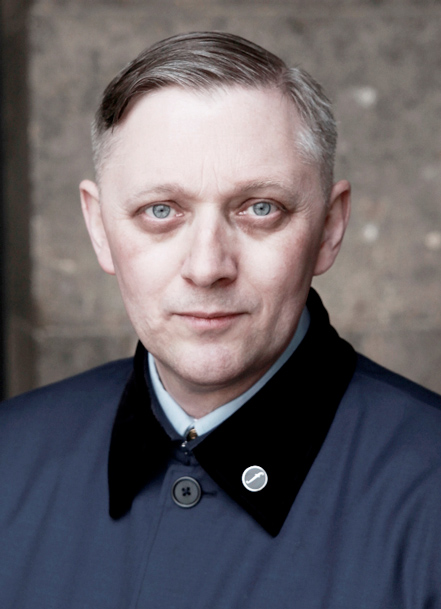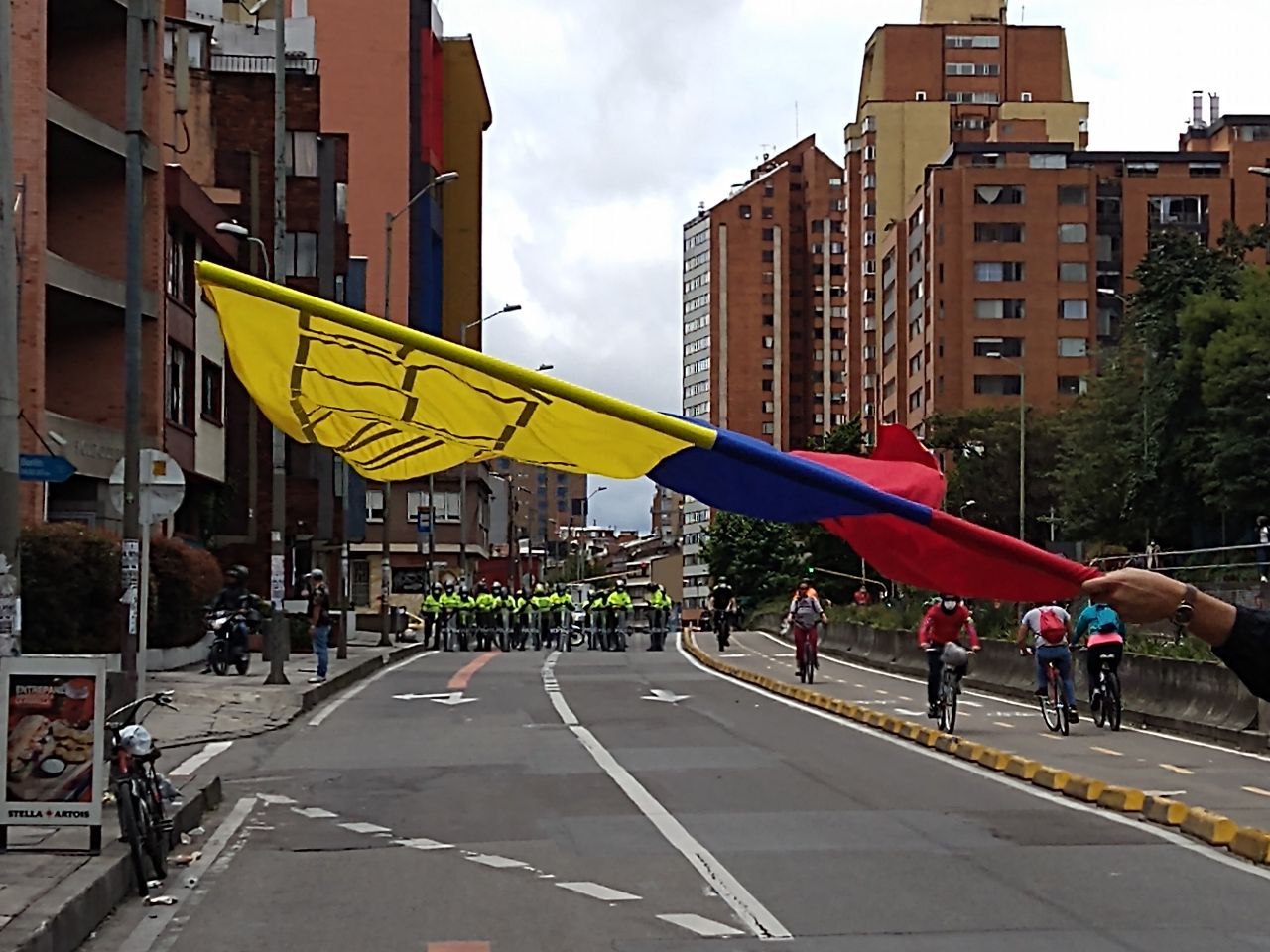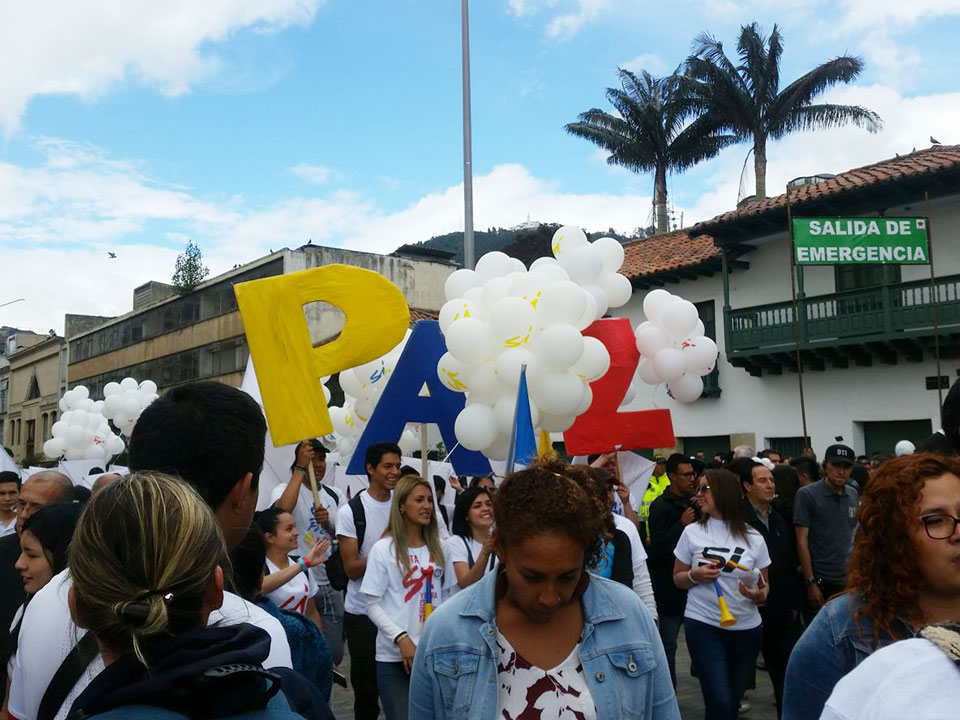Confused about the upcoming election? We’re here to help you with a set of cheat sheets on each candidate so you can follow the local news. This time we’re looking at Fico of Movimiento Creemos Colombia.

Who is Federico Gutiérrez, aka Fico?
His full name is Federico Andrés Gutiérrez Zuluaga, but he insists on using Fico. It seems like everyone in the race has been a mayor, and Fico did so in Medellín (2016-2020). He won that race narrowly – by a single percentage point – so he has experience of close fights. Before his mayoral position, he stood on the council for many years and had also challenged for the mayorship in 2012, finishing third.
READ MORE: Your Guide to the 2022 Colombian elections
Is he polling well?
Well enough, but not as well as he would like. He started to rise in the polls after being confirmed as the Equipo Por Colombia candidate, but has plateaued over the last few weeks. He still has a lead over third-place Rodolfo. However, the gap is narrowing. The last two weeks have been poor for him, with little impact.
What’s his campaign like?
Officially, he’s campaigning as “President of the People”, but in reality it’s a barrage of targeted anti-Petro rhetoric. Essentially, Petro is bad, Petro is a guerilla, repeated ad infinitum. He’s also seen as being right-wing, even far-right, although that’s not what he says and not his manifesto. For example, he says that he voted for the peace deal with the FARC, but few people know that. Another slogan is Orden y Oportunidades, but that’s not been used much lately.
And what’s in his manifesto?
This one is a whopper, at 106 pages. He starts off early with the economy, stupid. That may be an apt word, as there are some issues here. He puts in a baseline and his targets. Reasonable idea, but the baseline is slightly cheeky. He’s cut it short by a year, so the current economic bounceback will go in his target figures, whereas the pandemic effects will be in the baseline. It may only be six months, and the data might not be there yet, but it’s a bit naughty. It’s also quite misleading, given that 2020-2021 was, let’s say, unusual. He wants growth to average 5% annually, raise investment to 30% of GDP and get GDP per capita (PPP-adjusted, we think, but he doesn’t make this clear) up to USD$16,000. He’s aiming to get GINI under 0.5 as well. Finally, he wants unemployment back into the single figures. This will be paid for by the mythical ‘efficiency’ in part, but also by tax reform that won’t hit the vulnerable or those at middle-income levels. Pensions to be lower than proposed by other candidates (at least COP$330,000 a month) but he promises to reach millions more people than are covered now.
READ MORE: Interview with Federico Gutiérrez
Corruption is a big deal for him. First off, jail and a complete lifelong ban from public office, elected or not, for anyone found guilty of corruption. Next up, getting rid of unfair laws that force ordinary people to pay for specific papers arbitrarily demanded by companies. All public contracts will follow set and standardised rules and procedures rather than being tailored to the occasion and they will all be on a transparent public database. Anything outside the database will be invalid. Essentially everything will have to be done on the open market. By 2026, all state contracts to be on a database and at least half using the standardised rules. Fico wants tax evasion to be fought in the regions, putting in more investment to apply the laws, and to make DIAN fully online.
Security and crime is another big area. Here are some headline figures: He wants to reduce homicides per 100,000 people to 21 (from 26) and halve theft from 540 per to 270 100,000 people. He’ll go after the heads of organised crime, rather than the rank and file, with tough anti-mafia laws. A national anti-robbery unit to combat personal attacks – apparently that’s not standard policework. Drugs to be combated with crop substitution and anti-dealing measures, going after the finances rather than street dealers. Addiction to be treated as a public health issue. More jails, built with private money, and less congestion in the court, mainly through greater virtualizacion.
Technology underpins a lot of this. With 5G on the way, he wants to get everybody using at least 4G by 2024. The construction of 20,000 digital centres in the regions will bring broadband to half the rural population. An entrepreneur fund in SENA will start 10,000 new businesses and tourism will provide 400,000 jobs, a key part of the pledge from earlier. Gutiérrez envisages 18,000 km of new roads in four years, mainly tertiary connections. In education, more investment in SENA, more free places in higher education for people from estrato 1,2,3 and ICETEX loans to be repayable only when employed, on a sliding scale (like the UK system). Plus, 200 million trees to be planted, and protection for 2 million street dogs.
Who is he running with?
Rodrigo Lara Sánchez, ex-mayor of Neiva. Elected with a record number of votes, he was widely celebrated in his time as mayor. Under his governance, the city implemented a new system for transparency in contracts and its education projects got noticed. He also won awards for digital innovation and the World Bank has recognised his work on education.
Fico seems young.
Fico is the youngest candidate in the race. Among the frontrunners, he’s in his 40s while the other candidates are in their 60s and 70s. He does try to project a youthful image – open necked shirts, hair flowing in the wind and so on. It’s worth remembering that Duque (even younger on the campaign trail) was criticised for his perceived lack of experience and ended up dying his hair. Fico is also seen as a bit of a Johnny-come-lately in some quarters, lacking experience at the national level.
My friend says he’s el que dice Uribe. What does that mean?
It means that controversial and influential politician Álvaro Uribe supports him. While Uribe is supporting him, he’s not fully embracing the endorsement. He has good reason for that – Uribe brings a lot of votes, but those votes will go to anyone against Petro anyway. Uribe also brings a lot of hatred, so he’s a divisive figure. He’s not representing the Centro Democrático directly, but many are certainly supporting him. Others, though, are sending support to Rodolfo. If it comes to a second round against Petro, though, he absolutely will get all the support from the Uribista camp.
Any skeletons in his closet?
He seems to have some dubious friends, that’s for sure. He had Cielo Gnecco, a powerful political clan leader from Cesár, up on stage last week. Controversy and corruption allegations swirl around the Gneccos, but they can probably deliver votes. A murky business. Then there’s the Char clan, another powerful coastal family that backs him, again accused of corruption.
‘La bodega de Fico’ was another worrying incident. This was an investigation by the University of Antioquia into his use of public funds to attack rival politicians online, using both bots and false profiles. Others claim that he inflated his figures while he was mayor of Medellín.
So, can he succeed?
Absolutely. It looks likely that he’ll finish a distant second to Petro in the first round, but the second round will be a different kettle of fish indeed. He’ll take a lot of the non-Petro vote, but he won’t take it all. The big question is if he can attract enough to cross the 50% threshold. It’s far from a done deal, but he certainly has a good chance. This is assuming, of course, that he makes the second round. That’s likely, but again, not a done deal.





